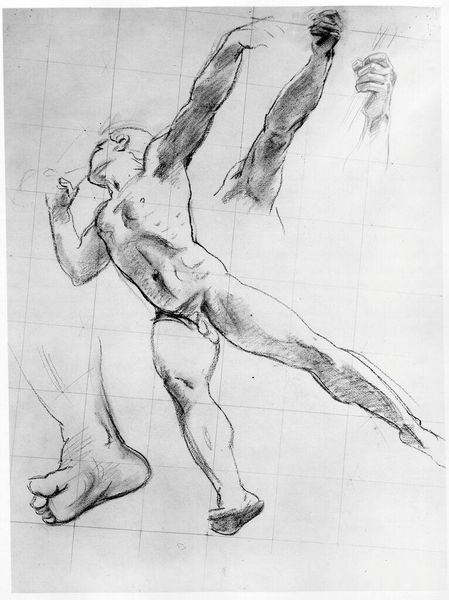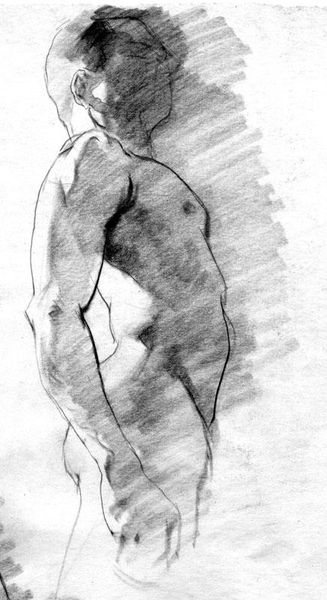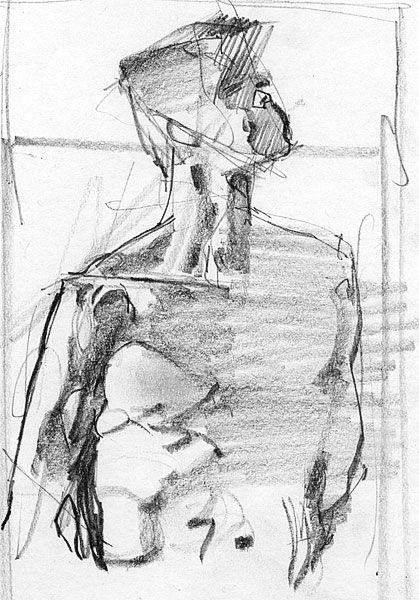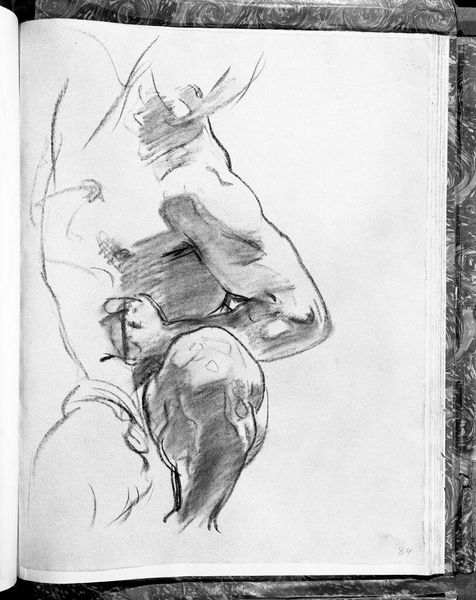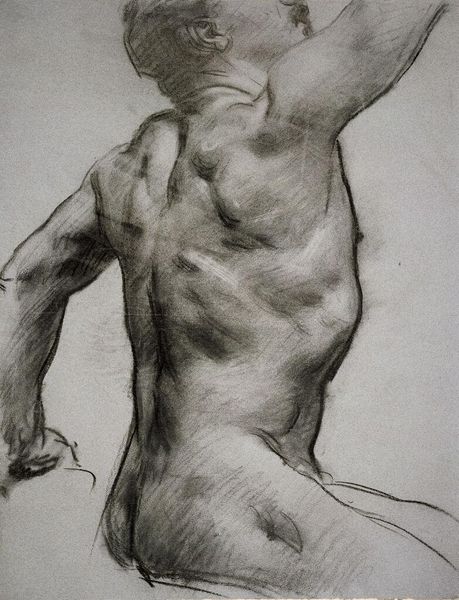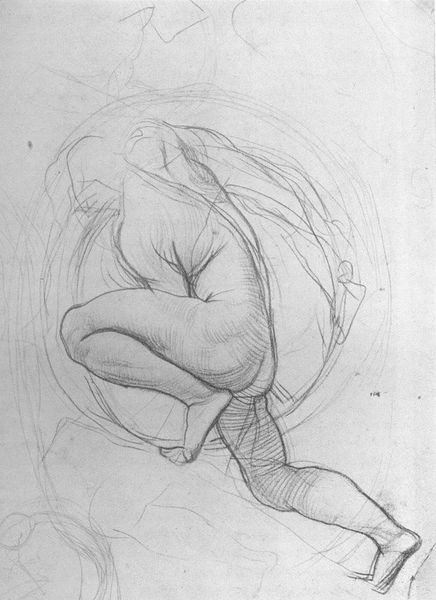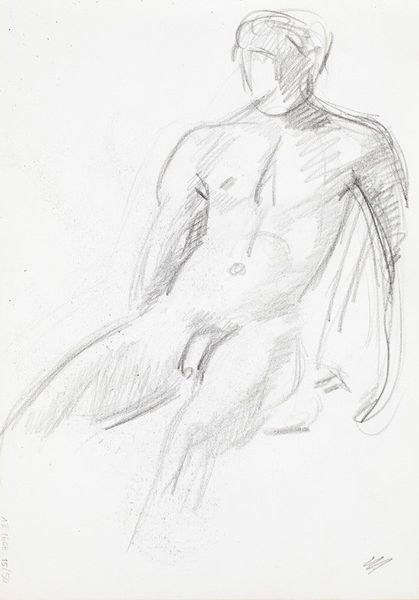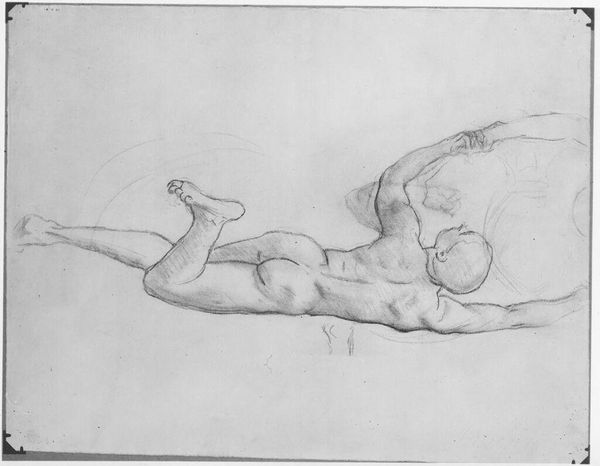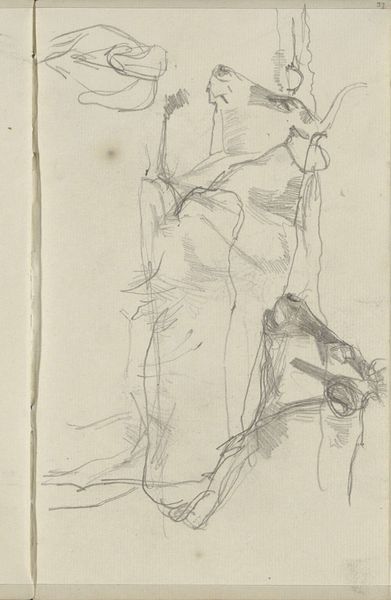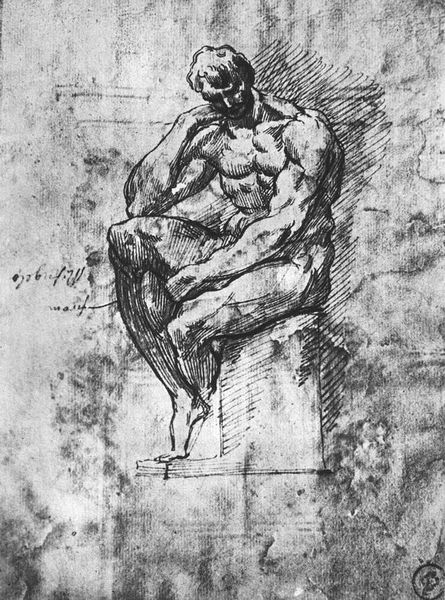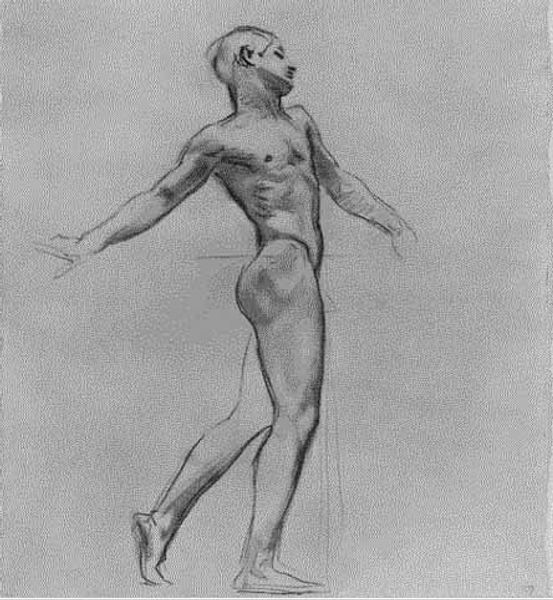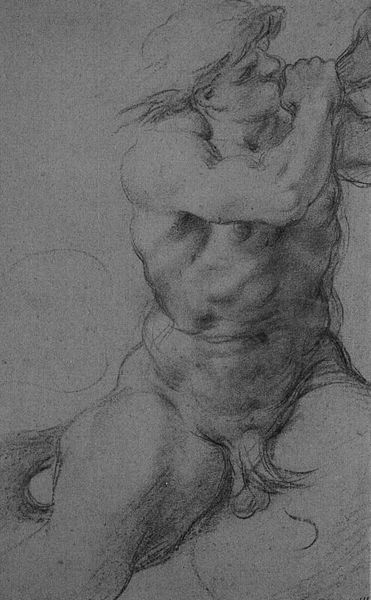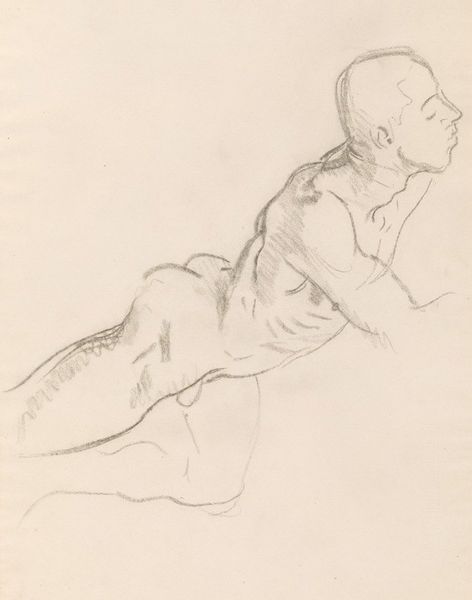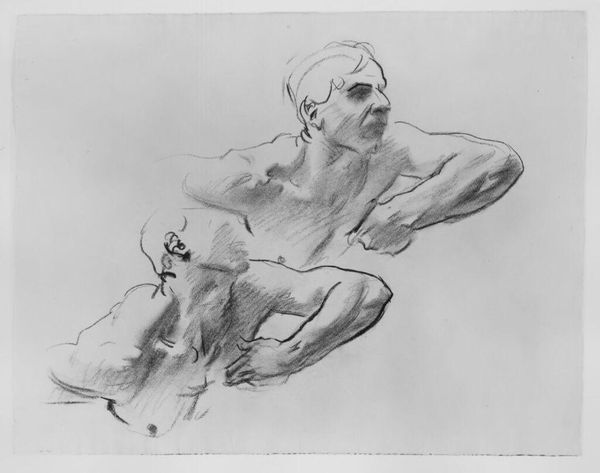
drawing, pencil, charcoal
#
portrait
#
drawing
#
charcoal drawing
#
figuration
#
pencil
#
line
#
charcoal
Copyright: Craig Mullins,Fair Use
This sketch by Craig Mullins presents us with a classical symbol: the male torso, an icon of strength and vitality. Its roots trace back to ancient Greece, where the idealized male form represented not just physical prowess but also moral and intellectual perfection. Consider the contrapposto, the slight shift in weight and posture—a motif we see echoed in Renaissance sculptures and even much earlier in Egyptian statues. This gesture embodies balance, movement, and a sense of life. It's a visual cue that resonates deeply, triggering associations with power and control. Yet, here, the sketch is unfinished, dissolving into lines and shading. Is this a statement on the transient nature of perfection or the subjective experience of beauty? The incomplete form challenges the classical ideal, suggesting that true power may lie in the potential rather than the concrete. This fragment of a man, caught in a moment of creation, evokes a primal response, engaging our subconscious desires for growth and completion. It is a reminder that symbols evolve, their meanings fluid, shaped by time and our collective memory.
Comments
No comments
Be the first to comment and join the conversation on the ultimate creative platform.
